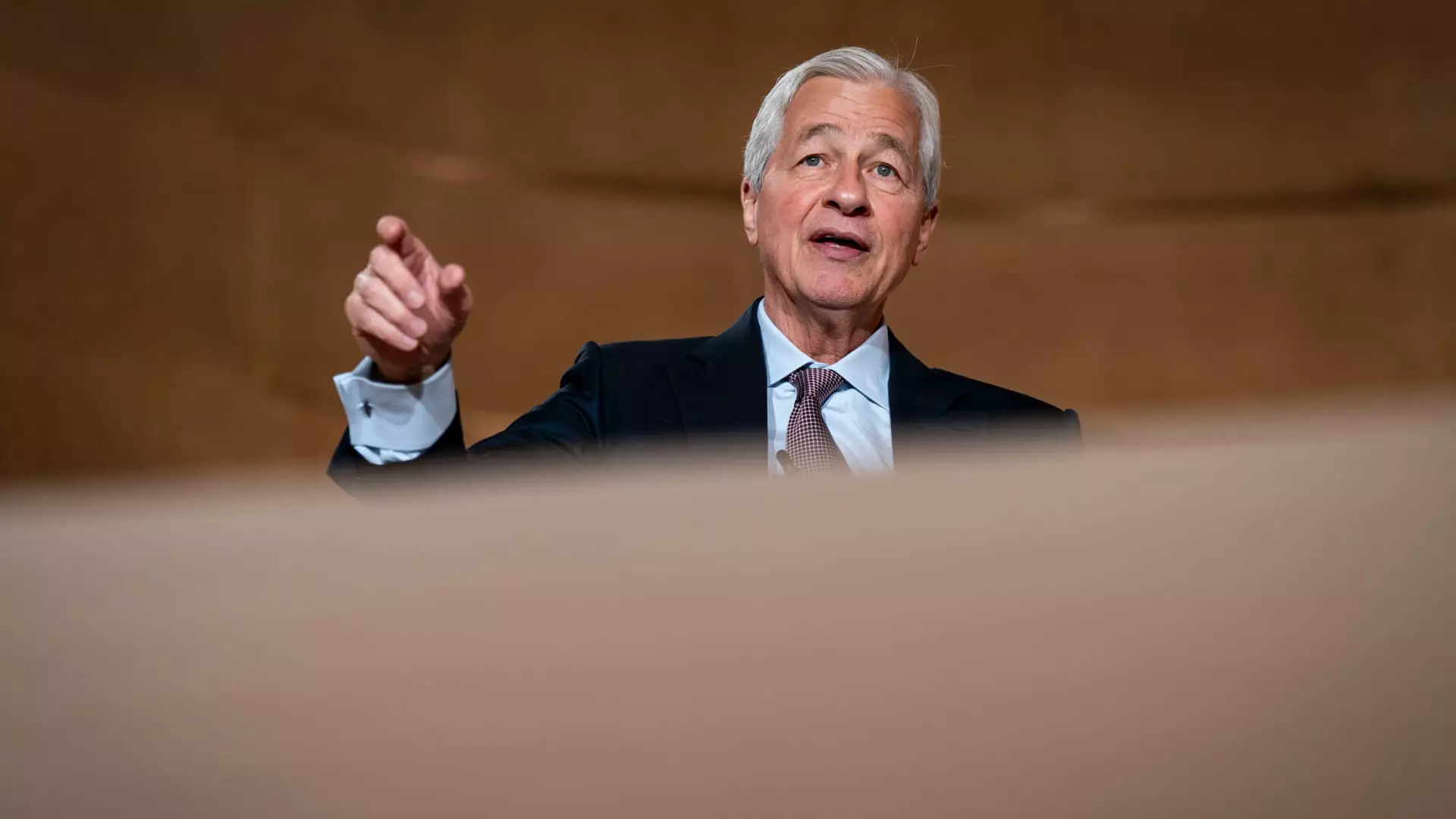In a world that often finds solace in the rise and fall of stock prices, Jamie Dimon, CEO of JPMorgan Chase, has calmly pierced the bubble of complacency surrounding the American economy. His remarks during the bank’s annual investor day meeting shone a stark light on the undercurrents of risks that many seem to overlook. He identified unprecedented U.S. deficits, escalating tariffs, and international uncertainties as harbingers of economic turmoil that could completely upend the fragile recovery we’ve enjoyed since the tumult of 2020.
Dimon’s assertions evoke an unsettling introspection about our collective economic outlook. It’s not just that we are gathering storm clouds on the horizon; it appears that many investor relations are steeped in denial, banking on a transient bubble of positivity without acknowledging the deep-rooted challenges beneath. With inflation looming and the specter of stagflation whispering warnings in our ears, it is bewildering that the stock market seems so nonchalant, dismissing these risks as mere blips on an otherwise rosy economic radar.
The Fragility of Market Optimism
While the stock market staged an impressive comeback after an April dip, Dimon’s insights demand a critical reevaluation of this optimism. He expressed disappointment in the seemingly “complacent” approach that central banks and investors have adopted. It’s akin to sailing toward a hailstorm with a flimsy umbrella believing it will shield us from the downpour. In Dimon’s analysis, the soaring stock prices reflect an unfounded confidence that ignores painful historical precedents where markets have misjudged pivotal economic indicators.
Signature to this discussion is the recent downgrade of the U.S. credit rating by Moody’s, which highlighted growing concerns about government debt. This signals a crucial turning point that must not be ignored. The conditions surrounding heavy deficits and unrevoked tariffs could lead us into an inescapable cycle of economic stagnation marked by rising prices—exactly what Dimon cautioned against. His predictions regarding the stagnating earnings growth for S&P 500 companies must be taken seriously—not merely dismissed as worrywart commentary.
Repercussions for Corporate America
As a seasoned leader, Dimon ventures a daring claim that corporate revenue expectations might tumble from an anticipated 12% growth to a stark 0% over the next several months. This revelation isn’t just corporate jargon; it’s a potential harbinger of widespread economic malaise. In this context, if corporate America enters a phase of reduced confidence—where acquisitions and financial commitments are shied away from—low growth projections could very well lead to declining stock values. The repercussions of such shifts could be devastating, especially for the millions of employees directly impacted by corporate strategies.
It’s clear that Dimon’s prediction of declining earnings estimates is not merely speculative but a rational conclusion drawn from current trends. As one of his key deputies notes, corporate clients are adopting a “wait-and-see” stance, further exemplifying the cautious, if not grim, potential for continued investment and growth.
A Leadership Perspective on Future Challenges
As Dimon contemplates his future at the helm of JPMorgan Chase, he admits a certain inevitability to the transition of power. Yet, what kind of leadership could steer the company, or American economic policy at large, through the impending tempest?
Dimon’s consistent emphasis on strategic forethought is paramount. With successors like Marianne Lake potentially stepping into the spotlight, the leadership decisions made today will echo through the company’s future as well as the broader financial landscape. Her hour-long presentation showcased insights that could prove invaluable, especially as we navigate through uncertain waters that Dimon poisedly described.
The true test for Dimon, his successors, and policymakers will be their ability to recognize risks for what they are, rather than allow themselves to be blinded by the glitter of stock indices or past recovery narratives. The forces of complacency must be challenged head-on, and an acute awareness of economic vulnerabilities should become the hallmark of fiscal strategy. Failing to do so is not merely a theoretical risk but a precursor to potential chaos—an outcome that none of us can afford to ignore.

